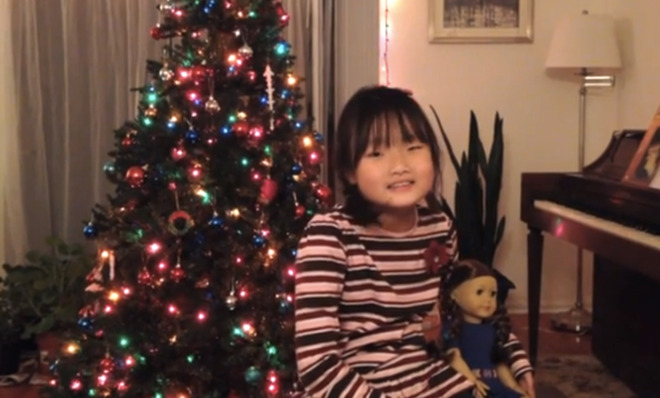Watch a 10-year-old girl's video pitch for a disabled American Girl doll
"I want other girls to know what it’s like to be me, through a disabled American Girl's story"

A free daily email with the biggest news stories of the day – and the best features from TheWeek.com
You are now subscribed
Your newsletter sign-up was successful

Melissa Shang, a 10-year-old girl from Paoli, Pa., has a request for American Girl, the Mattel-owned toy maker known for its popular, customizable mini-me dolls: Release a doll with a disability.
Shang, who uses a wheelchair, has Charcot-Marie-Tooth disease, a form of muscular dystrophy that effects motor and sensory nerves, making it difficult to control muscle activity, including walking, speaking, and swallowing. In a Change.org petition, she says all American Girl dolls have "stories about overcoming obstacles." The Girl of the Year doll — a limited edition figure with a backstory involving current issues — is her favorite, she says, because "they have helped me understand how it feels to be someone else."
She goes on:
The Week
Escape your echo chamber. Get the facts behind the news, plus analysis from multiple perspectives.

Sign up for The Week's Free Newsletters
From our morning news briefing to a weekly Good News Newsletter, get the best of The Week delivered directly to your inbox.
From our morning news briefing to a weekly Good News Newsletter, get the best of The Week delivered directly to your inbox.
However, none of the American Girl Girls of the Year are like me. None of them have a disability.
Being a disabled girl is hard. Muscular Dystrophy prevents me from activities like running and ice-skating, and all the stuff that other girls take for granted. For once, I don’t want to be invisible or a side character that the main American Girl has to help: I want other girls to know what it’s like to be me, through a disabled American Girl’s story.[Change.org]
American Girl has recently made steps toward representing a wider range of kids. Last summer, the company released a bald American Girl, joining Barbie, another Mattel product, in including girls experiencing hair loss. Then, for 2012's holiday season, it added hearing aids and allergy-free lunches to its accessories list.
These additions could be helpful for all kids, not just the ones with the allergies and hearing problems, explained Dodai Stewart at Jezebel at the time:
[P]lacing the hearing aid and wheelchair right on the same page alongside boots, eyeglasses, and a hairbrush normalizes these disabilities. Whether or not a a little girl is deaf, she gets to see a hearing aid not as some strange, foreign object, but one of many possible accessories a kid can have. Just being exposed to things like wheelchairs and allergy-free lunches can be a teachable moment, making a child who doesn't need those things accept and understand that some people do. [Jezebel]
To help Shang reach her goal of 9,000 signatures, go to Change.org.
A free daily email with the biggest news stories of the day – and the best features from TheWeek.com
Carmel Lobello is the business editor at TheWeek.com. Previously, she was an editor at DeathandTaxesMag.com.